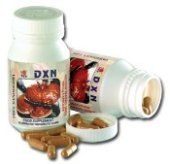Signs and Symptoms of Lymphoma
Swelling is the first among the signs and symptoms of lymphoma. It is one of the common signs that happens regardless whether it's a Hodgkins disease or a Non Hodgkins lymphoma. The swelling usually exhibits no symptoms of pain. It is also important to remember that most swellings in the lymph node are usually signs or symptoms caused by an infection and not necessarily lymphoma. Treatment for lymphoma depends on the severity of the signs you have. Sometimes, the doctor will recommend a "wait and see" period.
But if you're diagnosed with a fast-growing type such as B-cell lymphoma, immediate treatment is necessary.
Signs of inflammation usually occurs in one or more of the lymph nodes located in your. . .
- neck
- groin
- armpit or
- collarbone.
Infection as being the reason for lymph node swelling is one of the very common signs in children.
How will you know if swelling is one of the lymphoma symptoms?
The following signs and symptoms will occur. . .
1. The swelling persists.
When swollen lymph nodes return to normal size within a few weeks or months after you take antibiotics mean they are signs or symptoms of only an infection. A swelling that doesn't subside even after treatment is one of the warning signs you must see your doctor for.
2. The size of the lymph node is bigger than one inch.
A swelling that worsens and becomes larger is one of the important signs of lymphoma.
3. The swelling is accompanied by other suspicious signs.
Symptoms such as a swollen belly or abdominal pressure and chest pain or respiratory problems.
Your belly may swell if the cancer affects the lymphatic tissues in the abdomen. If you are female, it may look like you are pregnant. Swelling may put pressure in your intestines and block the passage of stool creating new symptoms such as abdominal pain.
Respiratory problems are also signs which include coughing or shortness of breath. They are symptoms caused when the cancer already affects the lymphatic tissue of the thymus gland. The thymus gland is located in front of your heart. Thus, you may feel discomfort signs on the chest.
A swollen thymus can also put pressure on the trachea causing respiratory symptoms such as difficulty in breathing.
As lymphoma progresses and spreads beyond your lymph nodes, your body's immune system further loses its ability to fight foreign invaders. Symptoms you feel may also worsen.
This results to infections and additional signs and symptoms such as:
- excessive fatigue,
- night sweats,
- persistent fever,
- loss of appetite,
- lower back pain caused by enlarged lymph nodes putting pressure on your nerves,
- sudden weight loss, and
- pain in your enlarged lymph nodes after drinking alcohol.
You may experience the following signs and symptoms of lymphoma as the cancer progress:
- severe skin itching especially in the legs or feet, and
- red or purple rashes or lesions on your skin.
Return from Signs of Lymphoma to What is Lymphoma
Return from Symptoms of Lymphoma to Cancer Prevention
Looking for something? Use Google Search box to find it! |
 Ganoderma Extract Supplements |


